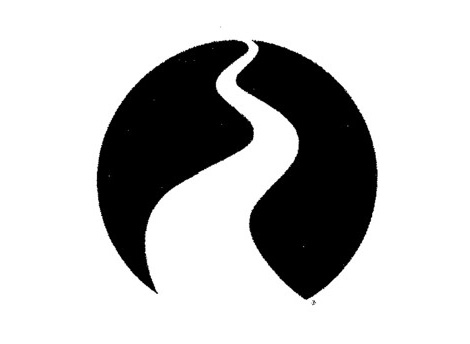‘An unexamined life is not worth living’ – Socrates.
Humanity is in crisis. In a relentless regularity of Cause and Consequence, human attitudes and consequent behaviour, have resulted in a world in which fundamental human values are ignored. The primal Cause of what we are witnessing today is a gradual increasing separation between what is everyday consciousness with its phenomena and obligations and a spiritual realisation in a kind of awareness of Ultimate Essence, in whatever form it appears.
Ultimate Essence is inherent in human beings. One may call it God or Great Spirit; Allah or Father; Dao or Brahman; Cosmos or a pleroma of gods, spirits, attributes of values, these are culturally determined representations of the same need to express something unknowable and ultimate in our being. That something is neither of ‘being’ nor of ‘not-being’. It is ‘non-being’, and because we with our lives are expressing ‘being and not-being’ that ultimate beyond of ‘non-being’ cannot be known.
It is in this ‘non-being’; this Ultimate Essence, that the regularity of Cause and Consequence originates. What we do in our world of ‘being and not-being’ has a regularity of cause and effect. That can be known and be analysed. What we are, as human beings, is of the regularity of Cause and Consequence.
When the world is in crisis, with more to loom, it is primarily the Consequence of what we are and only secondarily of what we do. What is Ultimate Essence is not something anthropomorphic. It does not think in good and evil. It has no concepts about this and that. It is natural and it reacts naturally.
Modern humanity has lost this realisation. If it wants to solve the dehumanising spiral with which humanity threatens its survival, we have to return to the realisation of that on what this survival depends. This should concern every human being. One may blame the leaders for their corruption and mismanagement; but we allow them to do what they are doing. We may blame advertisement and propaganda for our opinions; but we made ourselves vulnerable and an easy prey.
We can be slaves of circumstances or masters of circumstances, it all depends on the way we deal with circumstances. Those who obediently follow circumstances and those who violently oppose them are equally slaves. Those who know what they represent and realise Essence in them, will always act appropriately and will be masters of circumstances and of their lives.
What we think is determined by the language that we have at our disposal. We need a vocabulary to deal with questions of how to deal with life in relationship to what it is in Ultimate Essence. Every religion and spiritual tradition consist in such a vocabulary. These are words and images in order to shape the realisation of Ultimate Essence in our lives.
Most religions and spiritual traditions have the tendency to stifle themselves in truths, customs and dogma. They may be helpful instruments, but they constrict as truths. Therefore religions, though they share the same aim, they cannot agree with each other. When used for nationalistic or patriotic purposes they are outright dangerous.
The future of humanity concerns us all. Bickering and misconceptions over differences lead nowhere. The idea of a distinction between religion and secular life is something that was produced by the historical evolution in Western Christian thinking. It does not apply to other cultures. We are one psychological entity, there are no separate rooms for what is secular and what is religious.
Just because of the mountain of misconceptions it would be better to remove the words ‘religion’; ‘sacred’ and ‘secular’ from our vocabulary. These words are confusing.
Nâm has a very different approach. It starts with what we have in common. It presents a vocabulary that make it possible for us to activate the realisation of Essence in our lives with what is fundamentally necessary without cultural elaborations. In this sense it is truly universal.
At the same time every vocabulary is used in a distinct cultural setting. Therefore the way Nâm is expressed can be diverse. Its application may differ according to the cultural setting. Wisdom emerges in the openness to Essence; it is nowhere else.
Nâm is not propagating a truth, because all truth is relative. Nâm is a way to promote optimal living. This is called Authentic Living. This is a living as a whole not just as representing the range of ‘being and not-being’. In living what represents Essence is called Awareness; what represents Awareness in daily living is called Experience. Ignorance is ignoring Awareness as a constituent part of living.
At present Human with its attitudes and behaviour express a profound Ignorance. It has exchanged its inherent Wisdom for achievement, greed, wealth and power. This is not a sin; it is a Consequence, and therefore an invitation for improvement.
Ignorance is like a lethal illness; Nâm is like a potent cure whereby a living of Wisdom that lives Authentic lives will invite a different Consequence.
Nâm has a distinct vocabulary that is specific to Nâm. Concepts like ‘awareness’; ‘soul’ or ‘spirit’ are used in a very specific way. It would lead to confusion to compare them with their use in other traditions or in daily life.
Nâm opens a door to Wisdom, it enriches life and makes it more tolerant, more compassionate and more an expression of beauty and love. Nâm is a light for humanity. Nâm always starts with you, regardless of others and regardless of humanity.
Nâm with its Principle, Practice and Purpose has skilful means rooted in essential human. It is a way to individual enlightened living and one that leads to a global harmony expressing cooperation and peace.
That this seems an unreachable goal in itself demonstrates the disease. That we would be limited creatures is a detrimental propaganda. Every human being is born in order to become the master of one’s life and of one’s death. The mastery of this life determines in its turn the post-living. All ongoing and never ending.
Above text is based on the Preface of the yet unpublished manuscript “Nâm: The Guide to Authentic Living” by Yoginâm (9th of March 2021), and has been published here for the first time with the permission of the author.



